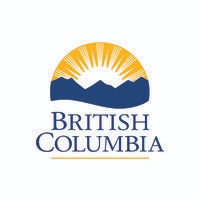
Rural Economic Diversification and Infrastructure Program (REDIP)
At a glance
- Maximum amount : 1,000,000 $
- Up to 100% of project cost
- Closing date : October 31, 2025
- Agriculture, forestry, fishing and hunting
- Professional, scientific and technical services
- Other services (except public administration)
- Public administration
- British Columbia
- Non-profit
- Public or Parapublic institution
- For-profit business
- All revenue ranges
- All organization sizes
- Indigenous Peoples
- Rural or Northern Residents
- Environment
- Economic, Social and Community Development
- Employment and Training
- Diversity and Inclusion
- Indigenous peoples
- Rural / Remote communities
- Business owners / entrepreneurs
- Nonprofits / charities
- All structures
- Local
- Regional
- Provincial
Overview
The Rural Economic Diversification and Infrastructure Program (REDIP) is a grant initiative by the Ministry of Jobs, Economic Development, and Innovation, designed to support rural economic development through projects that foster economic diversification, resilience, clean growth opportunities, and infrastructure development. Eligible activities include building local economic capacity, promoting economic diversification through development projects such as feasibility studies and infrastructure design, and supporting communities impacted by changes in the forest sector. The program targets small rural and Indigenous communities, offering up to 100% project cost coverage depending on the funding category applied for.
Activities funded
The Rural Economic Diversification and Infrastructure Program (REDIP) funds various projects to enhance economic capacity, foster economic diversification, and support communities transitioning due to forest sector impacts. Eligible projects must align with the program's objectives and fall within specific categories.
- Community assessment projects to identify economic development opportunities and needs.
- Capacity building initiatives, including targeted coaching and professional development.
- Engagement projects aimed at community consultation and fostering economic development resources.
- Staff recruitment and retention initiatives to reduce turnover and enhance stability.
- Feasibility studies, business plans, program design, and planning activities related to workforce housing.
- New or enhanced programs and services for workforce development and business expansion.
- Infrastructure design, including architecture and engineering for business support.
- Construction or upgrading of assets to support economic stability and sector development.
- Assets to attract investment and support sector growth.
Eligibility
Eligibility for this grant is determined by specific requirements related to the applicant's profile and location.
- The applicant must be a local government, regional district, Indigenous government, Indigenous development corporation, Indigenous-led not-for-profit, or a not-for-profit organization.
- The applicant must represent communities with populations less than 25,000, located outside Metro Vancouver and the Capital Regional District, or Indigenous communities.
- For the REDIP-EC funding category, the community must have a population of less than 2,500.
- For the REDIP-ED funding category, eligible locations are small rural communities with populations of less than 25,000 and Indigenous communities.
- For the REDIP-FIT funding category, the applicant can be an Indigenous or non-Indigenous community experiencing or anticipating forest sector impacts.
- Limited Partnerships cannot apply as lead applicants, but can act as partners to an eligible lead applicant.
- Communities with under 25,000 population in Metro Vancouver and Capital Regional Districts can apply for an eligibility exemption.
Who is eligible?
Eligible applicants for the Rural Economic Diversification and Infrastructure Program (REDIP) include a range of local and Indigenous community organizations in British Columbia. These include:
- Local Governments.
- Regional Districts.
- Indigenous Governments.
- Indigenous Development Corporations.
- Indigenous-led Not-for-profits.
- Other Not-for-profits registered under the Societies Act in British Columbia.
Furthermore, businesses and limited partnerships can act as partners to these eligible lead applicants.
Who is not eligible
This grant excludes certain entities and organizations from applying based on their status and activity focus. Key restrictions are outlined to focus funding on eligible applicants aligned with the program's goals.
- Federal entities, including federal Crown Corporations.
- Applicants not operating within the Province of British Columbia.
- Businesses seeking to apply as lead applicants.
- Limited Partnerships seeking to apply as lead applicants.
- Political parties, political action groups or lobby groups.
- Registered charities seeking to apply as lead applicants.
Eligible expenses
The REDIP grant supports rural economic development projects that build economic capacity and promote diversification and infrastructure development. Eligible activities aim to enhance organizational capacity, diversify the economic base, and support infrastructure projects aligned with community economic strategies.
- Community assessment projects such as identifying community economic development capacity, needs, and opportunities.
- Capacity building projects through targeted coaching, job shadowing, mentorship, and professional development.
- Community consultation and project identification for future economic development.
- Staff recruitment and retention initiatives to improve stability and increase resources in economic development roles.
- Development of feasibility studies and business plans for new economic initiatives.
- Design and planning activities for infrastructure projects to support business and sector growth.
- Implementation of programs or services related to workforce development, business development, and sector retention and expansion.
- Construction or upgrading of infrastructure to support economic development, stability, and investment attraction.
Eligible geographic areas
Eligible geographical areas for the REDIP grant program are specified to target communities that would benefit from economic diversification and development efforts. These focus primarily on rural and Indigenous communities outside major metropolitan areas in British Columbia.
- Small rural communities with populations of less than 25,000, located outside of the Metro Vancouver and Capital Regional Districts.
- Indigenous communities within the province of British Columbia, outside the Metro Vancouver and Capital Regional District areas.
- Communities experiencing or anticipating impacts from changes in the forest sector, including old growth deferrals, located outside Metro Vancouver and the Capital Regional District.
Selection criteria
The evaluation and selection of projects for the Rural Economic Diversification and Infrastructure Program (REDIP) are based on specific criteria with allocated point scores to ensure alignment with the grant’s objectives.
- Project Need: Describes the details of the project clearly and demonstrates why the project is needed. Preference will be given to Indigenous, small, and remote communities; and communities that identify/exhibit the strongest need for support with economic development capacity.
- Economic Capacity: 20 points
- Economic Diversification: 14 points
- Forest Impact Transition: 10 points
- Project Benefits: Identifies clear and tangible community benefits resulting from the project. Clearly describes how/why project activities will achieve intended outcomes. The project advances StrongerBC priorities of inclusive and clean growth. Details how the project will help create good, sustainable jobs in the community.
- Economic Capacity: 14 points
- Economic Diversification: 30 points
- Forest Impact Transition: 20 points
- Project Timeline: Demonstrates that the project is thoroughly planned and ready for implementation.
- Economic Capacity: 10 points
- Economic Diversification: 10 points
- Forest Impact Transition: 8 points
- Project Budget: Contains detailed descriptions and accurate estimates of project costs. Demonstrates costs are direct and essential to project implementation.
- Economic Capacity: 10 points
- Economic Diversification: 15 points
- Forest Impact Transition: 15 points
- Project Risk & Feasibility: Identifies potential risk factors and sufficient mitigation strategies. Demonstrates that the organization has the resources and skills to complete the project.
- Economic Capacity: 6 points
- Economic Diversification: 11 points
- Forest Impact Transition: 11 points
- Community Support / Planning: Provides strong linkages between project activities and community planning.
- Economic Capacity: 10 points
- Economic Diversification: 10 points
- Forest Impact Transition: 8 points
- Diversity, Inclusion and Reconciliation: Demonstrates organizational commitment to diversity, inclusion and Indigenous reconciliation. Considers the potential impacts of the project on all community members.
- Economic Capacity: 10 points
- Economic Diversification: 10 points
- Forest Impact Transition: 8 points
- Applicant Self-assessment: Preference for organizations with limited capacity to address economic development challenges.
- Economic Capacity: 20 points
- Forest Impacts: Applicants must self-identify forest sector economic impacts.
- Forest Impact Transition (only): 20 points
How to apply
Learn about the program (Research & Contact)
- Refer to the REDIP Program Guide for complete details about the program.
- Contact the program team or your local Regional Manager for support and to ensure your project is eligible.
Select a funding category and confirm your eligibility
- Ensure you are applying for the correct funding category.
- Confirm your eligibility and avoid common ineligible projects as listed in the program guide.
Review your project idea with program staff (Consultation)
- Connect with REDIP staff or a Regional Manager for a project review session.
- Use the REDIP Scoping Call Checklist to prepare for your consultation.
Create a Business BCeID
- Ensure your organization has a registered Business BCeID, as it is required for the application.
- Follow the Business BCeID instructions to create or confirm your BCeID.
Prepare your application (Documentation & Drafting)
- Use the practice Word document application forms for drafting your responses.
- Prepare a completed Excel budget template specific to your funding category.
- Complete a Direct Deposit Form to be submitted with your application.
Complete optional supporting documentation (Supplementary)
Submit your application (Online Submission)
- Submit your completed application via the REDIP online application form.
- Contact the program team for any concerns about submitting your application online.
After your application is submitted (Post-Submission)
- Await communication from program staff for any additional information required.
- Funding decisions will be communicated in Spring 2025.
Additional information
The REDIP is a competitive grant program with detailed eligibility requirements and a structured application process. Eligible lead applicants must ensure their projects align with the program's economic development goals.
- Applicants can be local governments, regional districts, Indigenous governments, Indigenous development corporations, and not-for-profits.
- Projects need to directly serve the applicant's community, and those involving multiple communities must meet eligibility for each.
- New Business BCeID is required for application, which can take several weeks to obtain.
- Applicants can submit only one application per intake for one category: REDIP-EC, REDIP-ED, or REDIP-FIT.
- Funding recipients must acknowledge the Province of British Columbia in promotional materials.
- Eligible costs include those directly related to the project and must comply with federal/provincial standards.
- Projects must provide documentation on budgets, partnership letters, relevant permits, and community support.
Contacts
Frequently Asked Questions about the Rural Economic Diversification and Infrastructure Program (REDIP) Program
What is the Rural Economic Diversification and Infrastructure Program (REDIP)?
How much funding can be received?
Who is eligible for the Rural Economic Diversification and Infrastructure Program (REDIP) program?
What expenses are eligible under Rural Economic Diversification and Infrastructure Program (REDIP)?
Who can I contact for more information about the Rural Economic Diversification and Infrastructure Program (REDIP)?
Where is the Rural Economic Diversification and Infrastructure Program (REDIP) available?
Is the Rural Economic Diversification and Infrastructure Program (REDIP) a grant, loan, or tax credit?
More programs like this
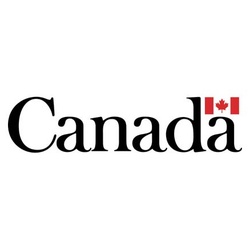
Regional Tariff Response Initiative (RTRI) — British Columbia
Government of Canada
Genome British Columbia — GeneSolve Program
Genome British Columbia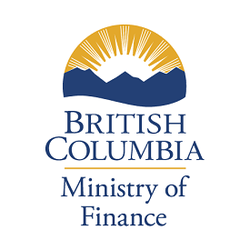
British Columbia logging tax credit
BC Ministry of Finance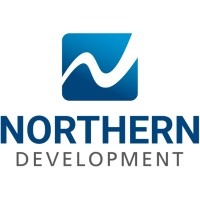
Northern Industries Innovation Fund
Northern Development Initiative Trust
CICE 2023 Directed Call for Innovation — Measurement, Monitoring and Verification (MMV) of Carbon Management
Government of British Columbia
Small Business Recovery (SBR) Consulting Rebate
Northern Development Initiative Trust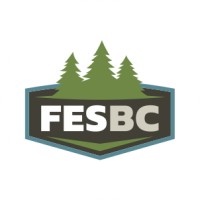
FESBC — 2025-27 Wildfire Risk Reduction Funding
The Forest Enhancement Society of BC (FESBC)
Firesmart Community Grants Program (FCGP)
Indigenous Services Canada
Genome Funding Opportunities
Genome British Columbia